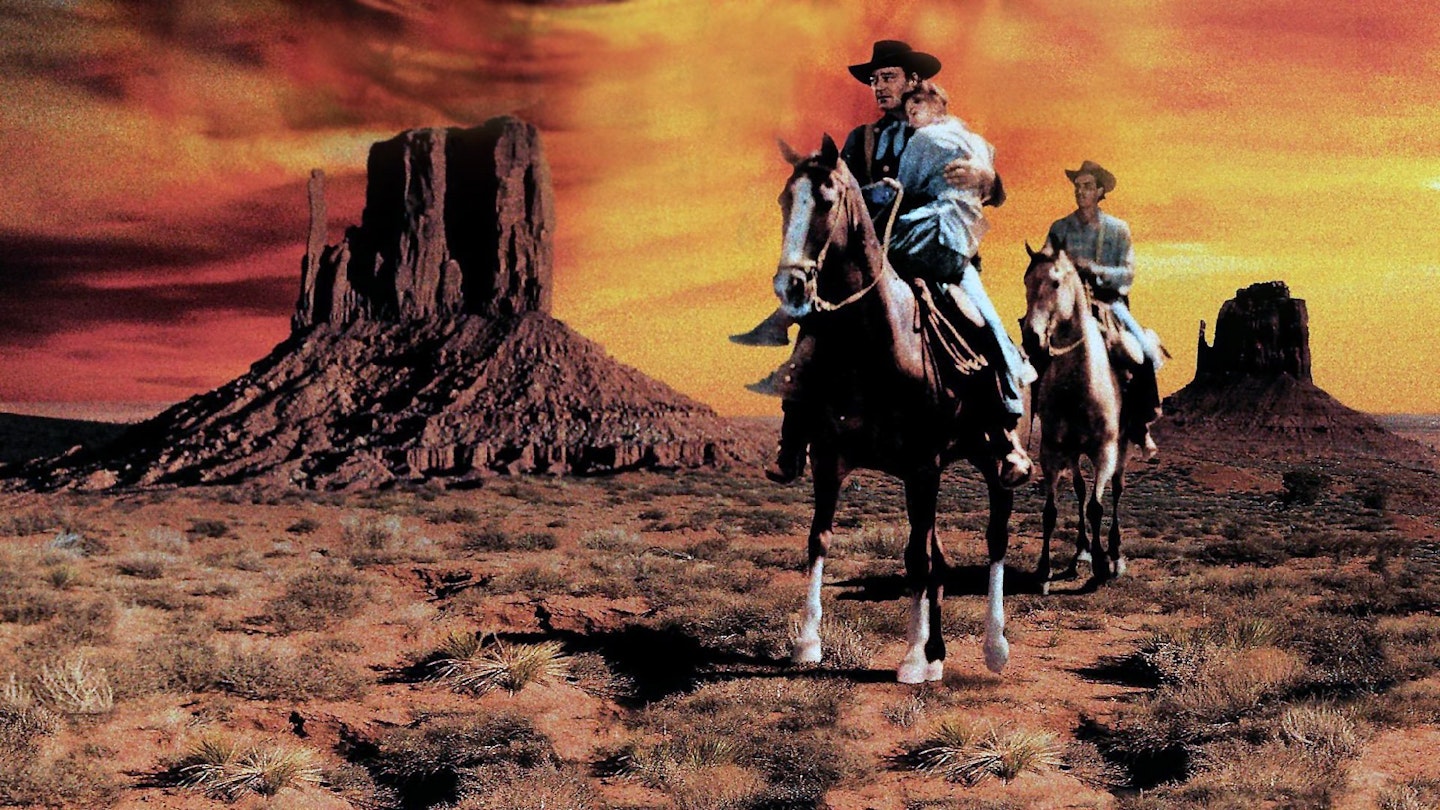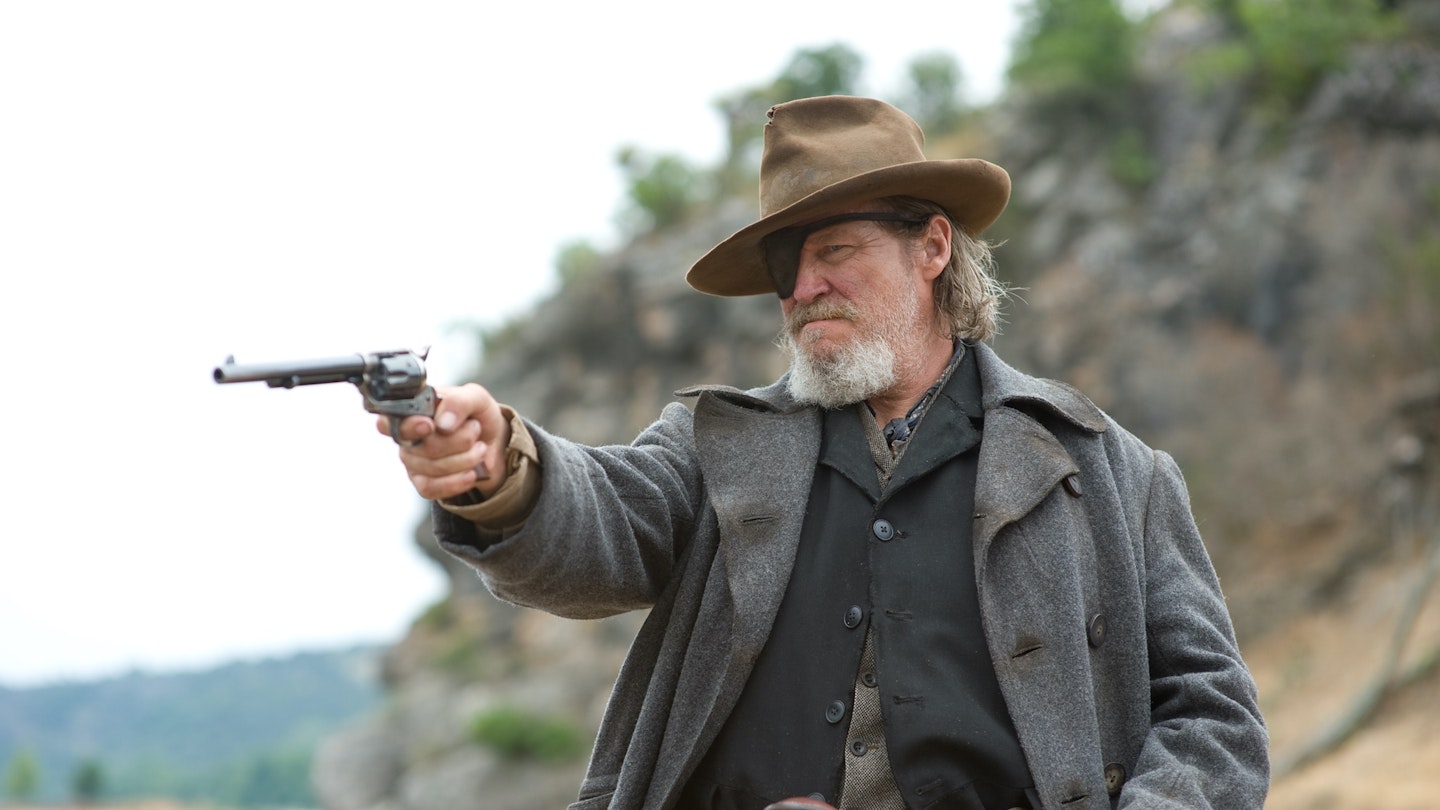IN 1956, when The Searchers was released, James Dean, Marlon Brando and Montgomery Clift had revolutionised screen acting with their critically lauded portrayals of psychologically complex, morally ambiguous figures. Yet none had a role in their repertoire to match The Searchers' Ethan Edwards — a role tackled with astonishing proficiency by an actor with supposedly a fraction of their range: John Wayne.
Here was a man lusting after his brother's wife, mutilating the corpses of dead Comanche warriors, scalping their chief and randomly shooting buffalo in the hope it would doom Indians to death by starvation. Here was a man whose epic quest to find his niece, kidnapped by Comanches, is motivated not so much by a desire to rescue her as to kill the 'tainted' Comanche squaw she has become. Dean's Rebel Without A Cause seems a little callow in comparison with Wayne's actual rebel — who still, in fact, possesses his 'Johnny Reb' coat, until he uses it to bury the body of a young girl who's been gang-raped and murdered by the 'bucks' he despises. The 1950s may have been the decade the Method boys came to change Hollywood, but the best performance of the era came from a determinedly old-school, old-fashioned, unreconstructed movie star.
Of course, even without The Duke's career-best performance, The Searchers would still be a remarkable achievement. Think of director John Ford's astonishing compositions, characters framed — by doorways or the widescreen Vista Vision ratio or both — against the epic landscapes of Monument Valley. Or consider Frank Nugent script, perfectly switching tone between extreme violence and folksy humour, and packed with more killer lines than any Western deserves.
So The Searchers stunningly photographed, beautifully written, hugely influential and expertly performed. But ultimately the film's worth can be measured on even grander terms: this is more than a movie, it's a revelatory insight into the psyche and identity of the most powerful nation on Earth.
European history is all about emperors, kings and queens — who married whom, who executed whom, what religion was that prince, which monarch waged war on which other monarch — while the people, or rather subjects, are reduced to the status of cannon fodder. Across the Atlantic, however, it's a different story. There, the grand narrative of history— or at least the mythologised history — is driven by the people. Those poor, huddled masses who crossed the ocean in search of a better life left their class-ridden inferiority complexes on Plymouth Rock or Ellis Island and got on with creating a country. If that meant heading West, fighting off/ butchering natives, facing up to incredible hardships, living off the land one acre at a time, so be it. Ordinary people did this, not because they were told to by a monarch, not for the greater glory of an Emperor, but because they wanted a life and home of their own.
The whole ethos is summed up superbly in a single scene from The Searchers, as Lars Jorgensen (Qualen), a Swedish immigrant, laments the loss of his son. "It's this country killed my boy," he croaks, his voice cracking with emotion — only for his wife (Olive Carey) to set him straight: "Now Lars, it just so happens we be Texicans. Texican is nothing but a human man way out on a limb, this year and next and maybe for a hundred more. But I don't think it'll be forever. Someday this country's gonna be a fine good place to be. Maybe it needs our bones in the ground before that time can come."
This isn't a grandstanding speech; in fact, it's delivered in deliberately low-key fashion (single take, no close-ups) as the bereaved couple and Ethan sit on the porch together. But it tells you everything you need to know about the 'pioneer spirit' and the legacy which still resonates more than a century later: these are the hands that built America.

